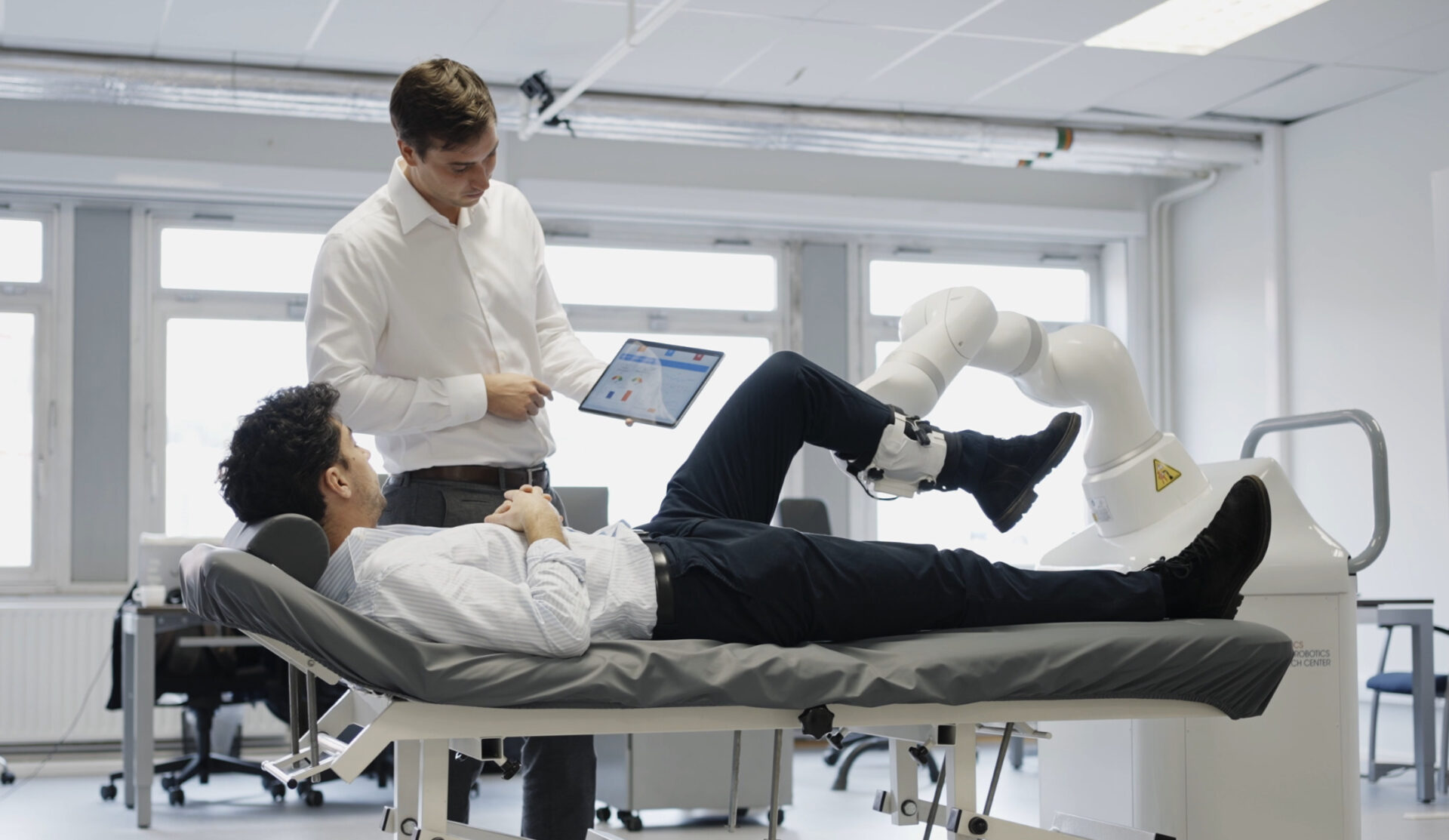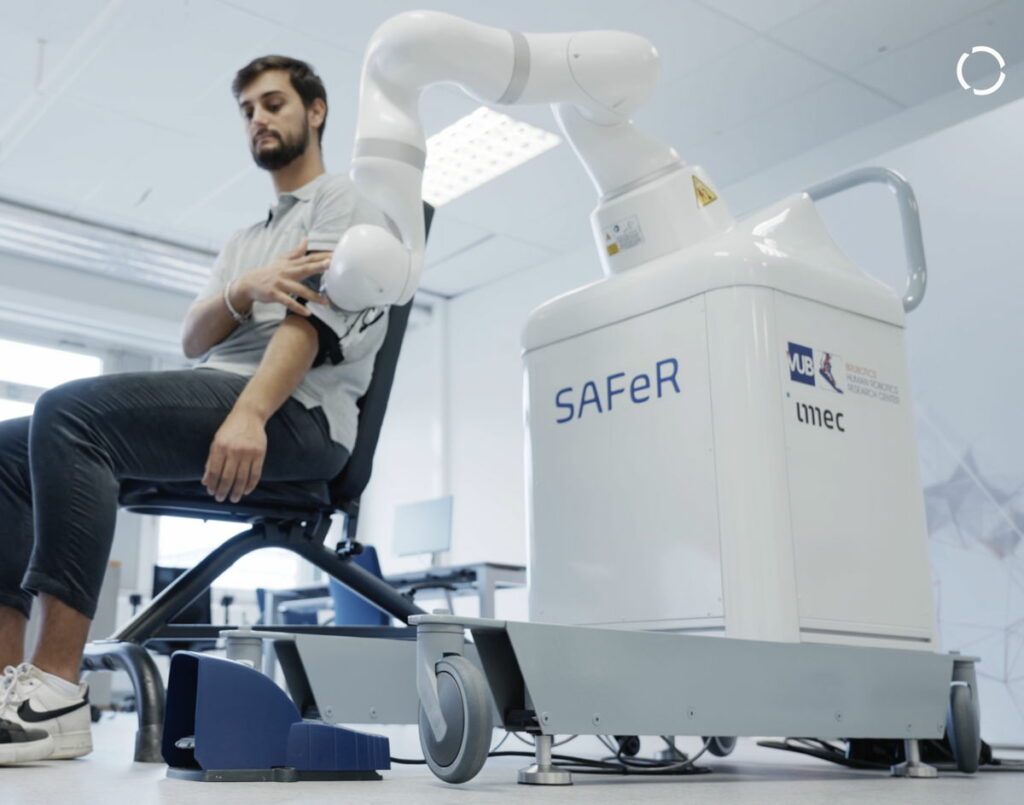Making fiction into a reality, students at the Vrije Universiteit van Brussel (VUB) have constructed a robot prototype to help treat patients following an accident or recovering from another medical condition.
A robot that can mimic what a physiotherapist feels when treating a patient, can adjust the intensity of exercises to the patient's abilities and can keep going for hours? The Brussels-based prototype combines all these skills and is expected to help alleviate the workload for therapists.
"In rehabilitation, after an accident or stroke, it is very important to train the patient on certain movements as soon as possible and as much as possible," said Kevin Langlois, a postdoctoral researcher at Brubotics at the VUB.
"Especially following a stroke, where certain neuronal pathways are interrupted, such intensive and prolonged training is appropriate so that the brain can make other neuronal connections to re-learn those movements."

The robot's "arm" attaches around the patient's leg or arm and can sense how strongly the patient cooperates. Credit: VUB
While therapists aim to train with patients as often as possible, their time is usually limited per patient, meaning many people actually get too little training, delaying the rehabilitation process. "Our robot can partly support therapists in this process," Joris De Winter, who is collaborating on the project as a PhD student.
A similar robot named "Robert" was previously developed, certified and commercialised in Aalborg, Denmark five years ago, a solution that is now used by several clinics in Denmark, Poland and Finland.
Adjusted level of assistance
The robot has a type of arm that attaches around the patient's leg or arm, which can reproduce senses in a therapist's hand and can therefore also sense how strongly the patient cooperates during exercise.
"We use artificial intelligence to control the robot and adjust the level of assistance. Our robotic arm is also strong enough to operate both lower and upper limbs, which is also new, and it can perform very complex and functional tasks for longer than a therapist," De Winter explained.
Related News
Since it was designed and the prototype was finalised, the robot has already been tested by physiotherapists at the rehabilitation centre at UZ Brussel, who were able to use it after just an hour's training, and gave it high praise.
"The feedback we gathered that way was very useful," says Langlois. "We use it to continuously improve our prototype. The goal is to have a robot ready for commercialisation in five to seven years' time."

